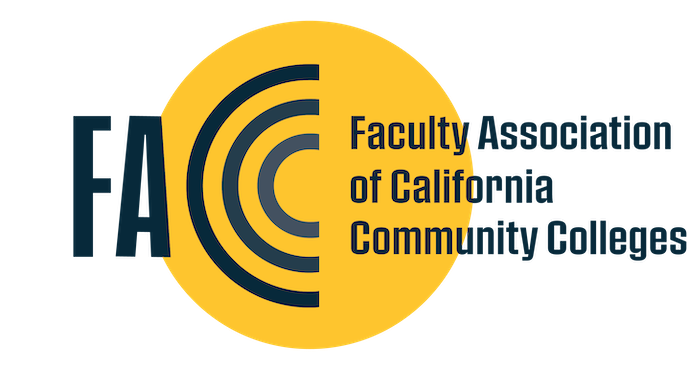|
FACCC Diversity, Equity, and Inclusion Statement To ensure the equal educational opportunity of all students and the creation of a just society, the Faculty Association of California Community Colleges embraces the call for the elimination of racism from all aspects of our society, starting with our state’s community colleges. Among the critical steps in this direction are the various diversity, equity, and inclusion initiatives being nurtured throughout the state’s community colleges. Racism did not always exist in human societies. Critical race scholars have long understood that the origins of racism are to be found in the establishment of hierarchical societies in which those who sought to monopolize power did so by dividing people from each other. A divided people thus became a dominated people in which access to power was based on one’s allocated location in a hierarchical social structure. We believe that our society will be better off with the elimination of racism. We believe that racism as a divide and conquer strategy for the exploitation of working people, of the land, and in particular of communities of color also has caused immeasurable damage to the entire society, including those who apparently are higher on the ladders of privilege. In this way, we all have an interest in anti-racism work. Because the long-standing foundations and history of racism are embedded into virtually every aspect of our society, including our educational institutions, the dismantling of these embedded structures of institutionalized racism is essential to this present project. This includes the elimination of all barriers to the educational opportunities our colleges offer but also, proactively, the establishment of programs to insure housing, food, transportation, and health security; the elimination of environmental racism; equitable access to information technology; and the creation of strong foundations for empowered student governments, student clubs, and united student communities in safe and inclusive environments. Individual and group differences and histories must be valued, respected, and leveraged for our growth and understanding as an educational community, but more than just “value and respect,” closing equity gaps will require the creation of very different spending and program priorities. To advance our diversity, equity, inclusion, and social justice goals requires that we develop and implement policies and procedures at the state and local levels to encourage individual and systemic change in our hiring policies to diversify the faculty; empower faculty to increase the number of ethnic studies programs offered at the community colleges and to embed appropriate multicultural curriculum and pedagogy throughout all disciplines; provide equitable funding to serve our students; and to ensure community colleges are prioritized by state policymakers for their critical role of serving the most diverse and disproportionately disadvantaged students. While, of course, we must all strive to make changes to our individual attitudes and assumptions through which we have sometimes internalized the norms of white supremacy, because the primary problem of racism in our country is grounded in the institutional structures of oppression and the systematic imbalances of power that have disadvantaged communities of color, the transformation of these structures must be our primary purpose. Among the goals of this transformative project must be a re-ordering of power and restructuring and rebalancing of representation at every level of the community college system, from local to statewide, to reflect the state’s diversity—including boards of trustees, administrative leadership, and the leadership of formal faculty, staff and student shared governance bodies. Not only must these bodies be reflective of the state’s diversity, but the imbalances of institutional decision-making predicated upon hierarchy and domination must be challenged from stem to stern. No one is free until we are all free. Our commitment to diversity requires that we strive to eliminate those barriers to equity and that we act deliberately to create a safe and inclusive environment where individual and group differences are valued and leveraged for our growth and understanding as an educational community. As an organization, FACCC is committed to demonstrating these values institutionally and prioritize the goal of its board of governors, staff, and leaders reflecting the diversity of California and its community colleges. FACCC pledges to do the necessary work called for in the creation of an anti-racist organization from top to bottom. |
